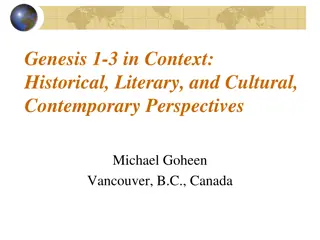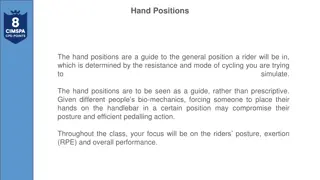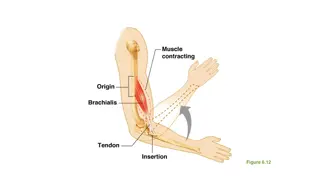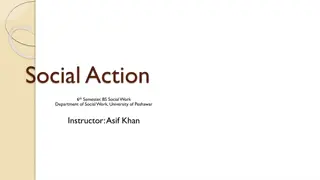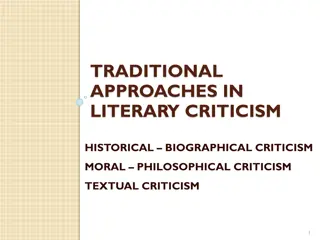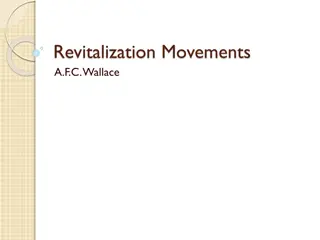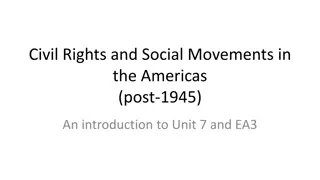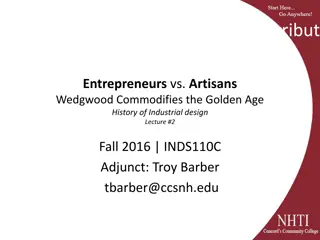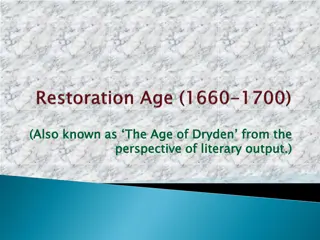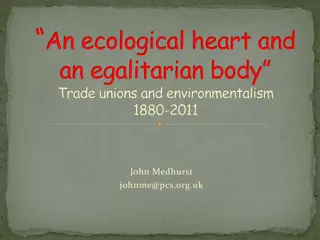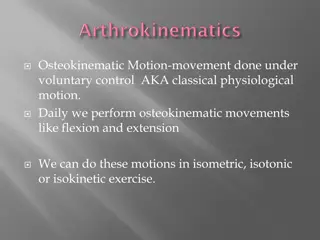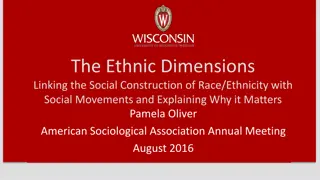Historical Background and Literary Movements
The historical background covers significant events such as the Edwardian Age, World Wars, political transitions, and social reforms in Britain. From the Edwardian Age to the modern era, explore the impact of wars, political leaders like Margaret Thatcher, and societal changes on British history. The visuals add depth to the narrative, revealing the evolution of literary movements amidst turbulent historical shifts.
Download Presentation

Please find below an Image/Link to download the presentation.
The content on the website is provided AS IS for your information and personal use only. It may not be sold, licensed, or shared on other websites without obtaining consent from the author.If you encounter any issues during the download, it is possible that the publisher has removed the file from their server.
You are allowed to download the files provided on this website for personal or commercial use, subject to the condition that they are used lawfully. All files are the property of their respective owners.
The content on the website is provided AS IS for your information and personal use only. It may not be sold, licensed, or shared on other websites without obtaining consent from the author.
E N D
Presentation Transcript
Historical background. Literary movements.
Historical background Edwardian Age (1901-1910) Britain had treaty obligations to Belgium August 4, 1914, Germany invades Belgium, bringing Britain into the war Britain's Royal Navy enabled the Allies to have access to the resources of the massive British empire and enforce a naval blockade on Germany Committee of Imperial Defense Improved naval defenses, began building the "Dreadnought" a new type of warship Concentrated navy in home waters rather than dispersed around the world
Historical background Public comes to see the war as a mistake that should never be repeated again. Labour government also wanted to take control over industry and public utilities. nationalization of the Bank of England as well as electricity and gas Violence between Catholics and Protestants continue in Ireland through the turn of the century. Britain was a founder member of North Atlantic Treaty Organization (NATO) in 1949 Sent troops to take part in the Korean War (1950 - 1953) against Communist North Korea.
Historical background CHANGE The 20th century was a period of drastic change, socially and politically. Maggie Thatcher: Milk Snatcher Reform! Instituted a large scale re-reform program, returning Britain to a liberal Conservatism. Thatcher unpopularly began attacking workers' unions.
Historical background Margaret Thatcher Privatized British Telecom, British Gas, British Airways, Rolls-Royce Thatcher's initiatives did not at first tackle rising inflation and unemployment skyrocketed. Became the least popular Prime Minister in the history of opinion polls. National Insurance Act beginning healthcare reform, mandatory contributions by all Family Allowances Act provided additional money for families with more then one child Industrial Injuries Act helped people injured on the job Bevan's National Health Act - 1946 provided free medical care to anyone who needs it.
Historical background THE GREAT WAR The gathering clouds of war finally broke in the reign of Edward s second son, George V (1910 36), who had become heir apparent after his elder brother, Albert, died nearly two decades earlier. The First World War (1914 18) not only wreaked horrifying carnage across Europe. Women were given voting rights, and independence was granted to the Irish Republic. A volatile spirit ran through the 1920s and 1930s: epitomized on the one hand by the devil-may-care joys of jazz and the Charleston, and bob-haired young flappers who cast aside traditional female roles.
Historical background THE FIRST WORLD WAR The First World War brought the front line to the civilian population. The wartime state extended its control over peoples lives in an unprecedented way, with conscription, increased taxation and censorship. Over 1.6 million women replaced conscripted men in the workplace. Country houses such as Wrest Park, Bedfordshire, and Osborne on the Isle of Wight were used as hospitals and convalescent homes for wounded soldiers.
Historical background UNEASY DECADES War ended on the Continent but broke out in Ireland, with the Anglo-Irish Wars (1919 21). Recession followed a brief post-war economic recovery. Troubled industrial relations led to the only general strike in British history in 1926. From the early 1920s the Labour Party, founded in 1900, overtook the Liberal Party in general elections. The slump following the Wall Street Crash of 1929 hamstrung economic reconstruction and meant continuing hardship, particularly in industrial areas. In the post-war territorial carve-up Britain gained mandates over a number of former German and Ottoman territories.
Historical background THE SECOND WORLD WAR In 1939, Britain found itself at war with Germany for the second time in a generation. After the defeat-turned-propaganda-triumph miracle of Dunkirk in 1940 Britain stood alone, unified behind Churchill. Victory in the Battle of Britain greatly raised morale, and subsequent blitz air raids on London, Coventry and many other towns failed to significantly lower it. GROWING OPTIMISM During the later 1950s and the 1960s, cars, washing machines, fridges, telephones and holidays all became increasingly affordable elements of everyday life. In 1957 Harold Macmillan could proclaim prosperity such as we have never had in the history of this country .
Historical background IMMIGRATION AND PRIVATISATION By the 1960s, Commonwealth immigration from the West Indies, India and Pakistan had begun to change the racial mix, although nothing like as much as its opponents believed. Heavy industry was in decline. University education expanded significantly, and new institutions flourished. The post-war consensus by which both parties broadly accepted the role of the state in the economy and the centrality of the Welfare State was broken by Margaret Thatcher. After the Falklands Factor gave her a second term in office in 1983 7, her Conservatives began to privatise national industries, starting with British Telecom. The miners strike was suppressed in 1984 5, breaking the power of the unions. And though she was overthrown by her own party in 1990, the pronounced rightward swing she initiated still holds.
Literary movements The 20th century was a time of great change and technological revolution. The roots of the 20th century styles and ideas are in the 19th Century, and are somewhat carried over. The authors of the time were very into writing about socio-cultural problems and changes. The 20th century is the period of time when both World Wars took place. The first War being from 1914 until 1918. The Second being 1939 until 1945. In both wars England remained on the Allied forces, and reach victory in both. In 1900 the Boer War took place, as well as in 1918 when the British Air Force intervened in the Russian Civil War. In England there was a disconnect in social unity and ultimate unreality of cultural and political ideals. Mainly in the second half of the century is when a lot of the questioning took place.
Literary movements World War I (1914-1918) Both T.S. Eliot and William Butler Yeats were heavily influenced by modernism and used it heavily in their works during the 1900s. This was the new style of writing in the 20th Century that captured the harsh reality of modern times. There are many different trends for this type of art form, included crating images to show a specific mood, which was especially used by T.S. Eliot and William Butler Yeats. Eliot also used bleak settings, sharp changes in context and language, and intellectual allusions to other writings and historical events. Another trend was rejecting rhythm, rhyme, and stanza for free verse and using fiction more than fact. Authors like James Joyce and Virginia Woolf used modernism while experimenting with a new literary technique: stream of consciousness, which reveals the character's inner workings through jumbled thoughts. Another author, D.H. Lawrence, wrote fiction which explored the influence of society on basic human impulses while demonstrating the interest in psychology and psychoanalysis during the time.
Literary movements Post World War I: Changes in the Homeland Writers of all kinds, including poet Rupert Brooke, created national pride for Britain by writing about the patriotic boys and men on the front. Some poets, such as Wilfred Owen and Siegfried Sassoon told of the horrors of war, painting a vivid picture in the minds of their audience. Each poet and writer, through their work, reflected their feelings towards the war, violence, and the ways to achieve peace, almost making their work appear as either propaganda for the war or protesting the war effort. Also, due to the Russian Revolution, a sudden spark of socialistic ideals and a socialistic movement overtook Great Britain. When war-weary soldiers returned home and received payment for their services, they demanded more for their war duties and sacrifices. Women especially benefitted from this period, by first gaining the right to vote in 1918 for all 30 years and over, and eventually everyone 21 years and over in 1928.
Literary movements World War II (1939-1945) During this World War, Nazi Germany tried to weaken Britain and eventually take it by using a military method called "Blitzkrieg" or "lightning warfare". This was when German V-2 bombers bombarded London daily from September 7, 1940 until May 21, 1941. To much amazement, Britain did not surrender, mostly due to Prime Minister Winston Churchill's constant encouragement and urging of the British people to not lose hope or give in. Literature also faced some tough times during the war. With paper and other supplies rationed, writing was temporarily put on hold. Some new poets, such as Sidney Keyes and Keith Douglas wrote of the war from first hand experience. Others, like Vera Britain and Elizabeth Bowen wrote of day-to-day life in Britain during the war. W.H. Auden wrote of society's indifference to human suffering and Stephen Spender wrote of how the British people during this time were often misled or misinformed about the war. Once again, as in WWI, poets and writers took advantage of their mass audience to show their feelings and thoughts of the war effort and British propaganda.
Literary movements The two most innovatory novelists to begin their careers soon after World War II were also religious believers William Golding and Muriel Spark. In novels of poetic compactness, they frequently return to the notion of original sin. From the late 1960s onward, the outstanding trend in fiction was enthrallment with empire. Widening social divides in 1980s Britain were also registered in fiction, sometimes in works that purposefully imitate the Victorian Condition of England novel. Typically, though, fiction in the 1980s and 90s was not futuristic but retrospective. As the end of the century approached, an urge to look back at starting points, previous eras, fictional prototypes was widely evident. The historical novel enjoyed an exceptional heyday.




